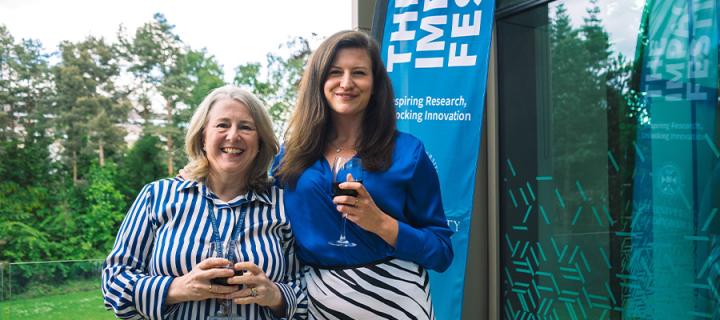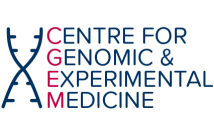hEDS-START project recognised with research impact award
The hEDS-START project from the Centre for Genomic and Experimental Medicine has been awarded the Responsible Engagement and Innovation Award at the University’s inaugural Impact Festival.

The project, which aims to facilitate the inclusion of the lived experience of people with hypermobile Ehlers-Danlos Syndrome (hEDS) and Hypermobile Spectrum Disorders (HSD) in research, was recognised for its approach to Equity, Diversity and Inclusion and detailed, thoughtful engagement process.
Trial Manager Kathryn Berg and Clinical Specialist Occupational Therapist Dervil Dockrell have been working alongside Ehlers-Danlos Support UK (EDS UK) for several years to capture and share the lived experiences of people with hEDS and HSD.
In 2023, they sought ethical approval to distribute a UK-wide survey to collect evidence of the lived experiences of HSD/hEDS, in order to underpin a future pathway of care in Scotland.
Preliminary data showed there was a very high incidence of neurodiversity in the study population, a lack of knowledge and empathy from healthcare professionals and inequity in the services provided across Scotland.
Winning this award from a personal perspective is profoundly satisfying in what has been a labour of love and late nights, but if winning it means we may be in a better position to take our research forward then that is even better. The award committee acknowledged the importance of giving patients a voice in a safe environment which has not always been the lived experience of hEDS/HSD patients.
Knowledge of hEDS/HSD is very limited among healthcare professionals and wider society. Our research has highlighted the disbelief, dismissal and misdiagnosis that these patients encounter on their diagnostic journey. At times the project has been quite distressing but it has taught us about the resilience of these patients.
This award has shown the importance of getting it right when involving patients in research.
We are planning to expand the hEDS-Start project and are applying for funding to do this. We would like to focus on identifying and addressing the barriers to the lengthy diagnosis time – an average of 20 years - by continuing to work with patients, health care professionals and policymakers through our work with EDS UK volunteers to achieve a pathway of care for hEDS/HSD patients.


